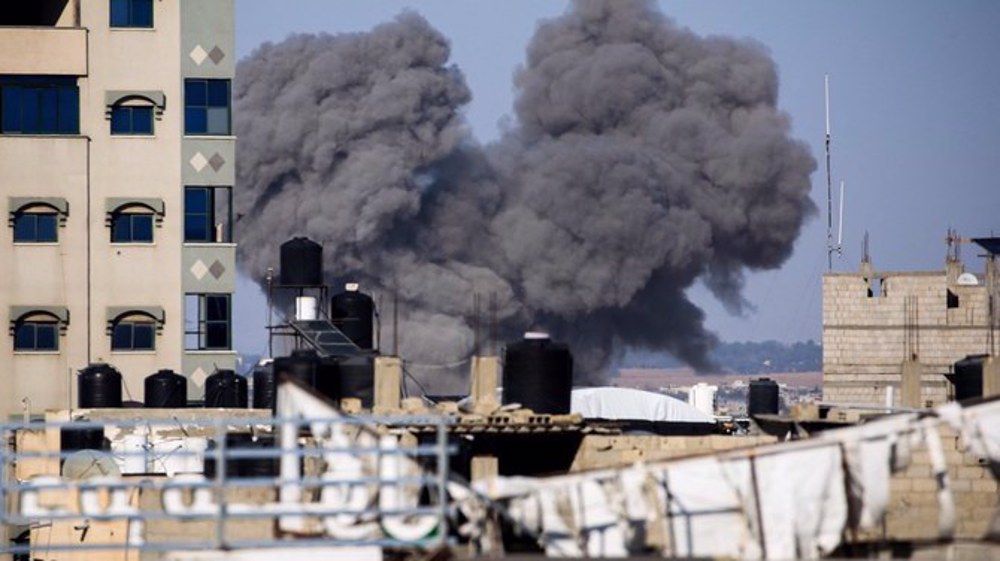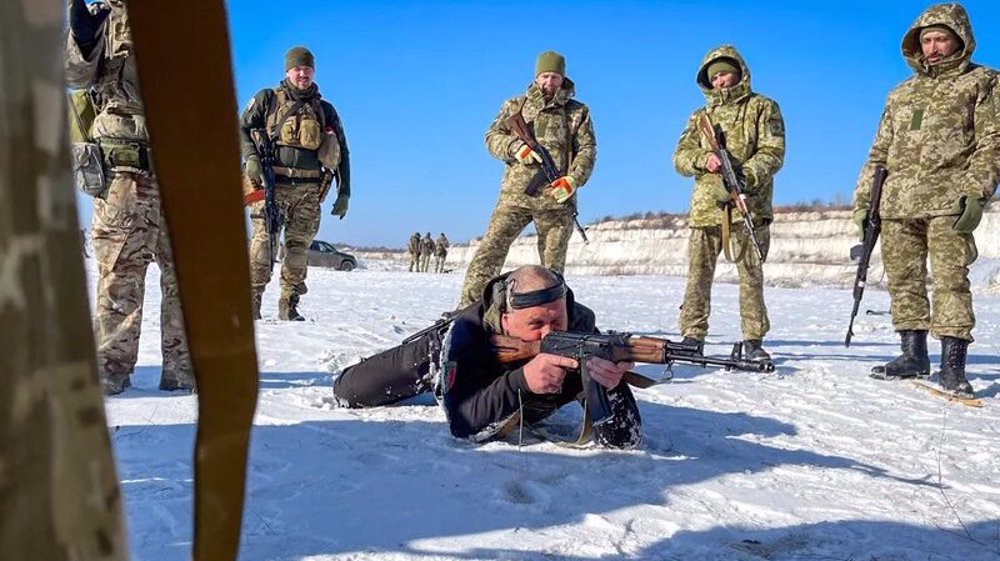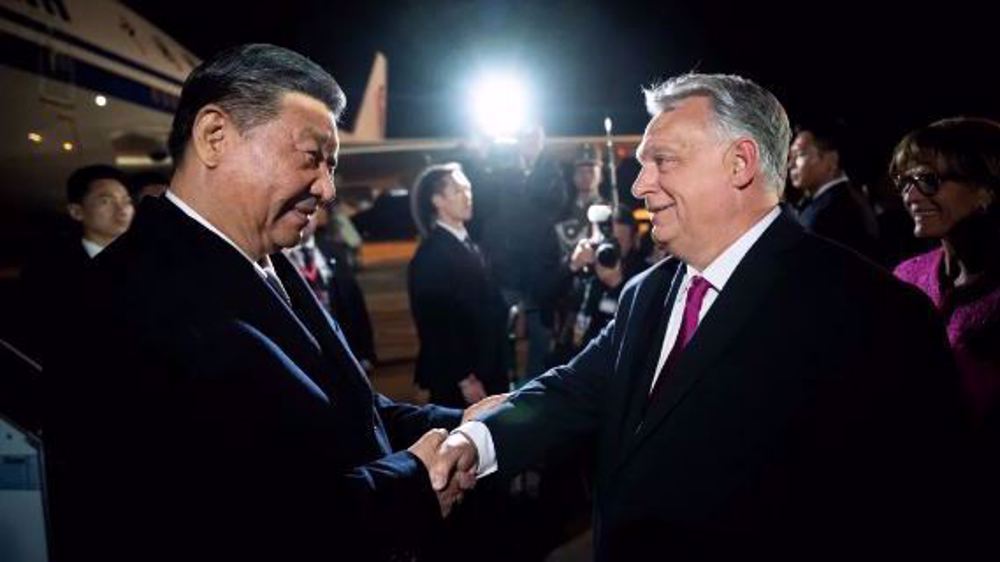Serbia accuses Kosovo of seeking war after train incident
Serbia's President Tomislav Nikolic has said that Kosovo showed it wanted war after it deployed forces to prevent the entry of a train from Serbia.
On Saturday, police in Kosovo halted a train at the border with Serbia because of its “provocative” decoration with the national colors and a nationalistic slogan.
The train, which had departed Belgrade and was headed for Pristina, was denied entry to the tiny Balkan country. It had been painted in the colors of the Serbian flag and inscribed with the words “Kosovo is Serbia” down its sides.
Denouncing the move as “completely unacceptable,” Kosovo’s President Hashim Thaci said the Serbian train had not been cleared by the authorities to enter the country and, therefore, he had ordered police special units to the border to halt the progress of the train.
“Anything that is illegal and threatens Kosovo’s state sovereignty must be prevented. This train is the latest provocation and authorities in Kosovo must use all legal means to stop this train immediately,” he said.

In a press conference later in the day, Kosovo’s Prime Minister Isa Mustafa also said, “I believe that turning back the train was the appropriate action and its entry into the independent and sovereign Republic of Kosovo would not be allowed.”
But Serbia's President Nikolic said that with the action, "Albanians showed they want the war," warning the two neighbors had been "on the brink of conflict" on Saturday.
Earlier, Serbian Prime Minister Aleksandar Vucic said he had ordered the train to return to Belgrade from the border because of fears it would come under attack.
He claimed that Kosovo’s ethnic Albanians had tried to mine the railway and accused authorities in Pristina of attempting to trigger a conflict with the local Kosovo Serbs.
“Serbia wants peace... but this is my final plea and a clear warning to Albanians and a message to Serbs... do not attempt to use weapons against Serbs in Kosovo as Serbia will not allow that,” Vucic said, without elaborating.
Kosovo, whose population is predominantly ethnic Albanian, declared independence from Serbia in February 2008 as the Republic of Kosovo. It has so far received international recognition from about 100 countries. However, Belgrade refuses to recognize Kosovo’s independence and still continues to claim it as its own Autonomous Province of Kosovo and Metohija.
Kosovo and Serbia were at war from 1998 to 1999, which ended after Serbian armed forces withdrew from the territory.
The bloody war between invading Serbian forces and ethnic Albanian guerrillas claimed some 13,000 lives, most of whom were ethnic Albanians.
In the wake of the war, tens of thousands of local Serbs fled Kosovo, fearing reprisals from the ethnic Albanian majority.

The latest incident coincided with growing tension between the Balkan neighbors as Serbia attempts to have Kosovo’s former prime minister, Ramush Haradinaj, extradited from France for alleged war crimes.
Belgrade accuses Haradinaj of committing war crimes against civilians in the 1998-1999 war, when he was the leader of ethnic Albanian fighters.
The International Criminal Tribunal for the former Yugoslavia (ICTY) in The Hague has already tried Haradinaj twice and acquitted him of war crimes.
Haradinaj was Kosovo’s prime minister from 2004 to 2005 and he is currently the leader of an opposition political party.
VIDEO | Iranians take part in runoff parliamentary vote
Colombia’s president calls on ICC to issue arrest warrant Netanyahu
VIDEO | Karachi students protest in solidarity with US universities standing for Gaza
VIDEO | US-Israeli genocide in Gaza
Hamas welcomes UN resolution for Palestine's membership bid
Flash floods kill 62 in one day in north Afghanistan
VIDEO | India sells arms to Israel amid regime’s genocide in Gaza
Iran welcomes UN resolution to revive Palestine's membership bid















 This makes it easy to access the Press TV website
This makes it easy to access the Press TV website